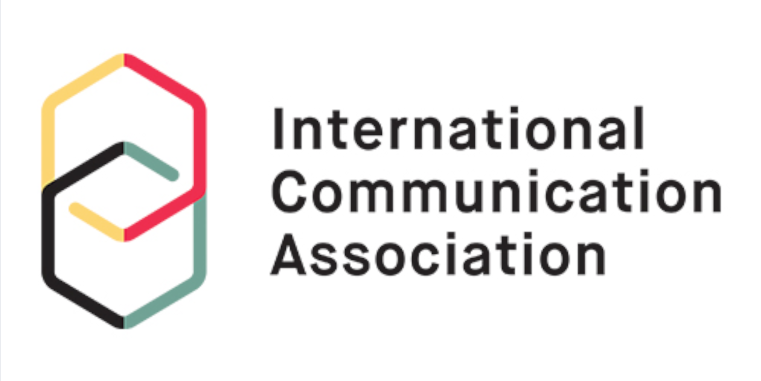

74th Annual Conference of the ICA in Australia: IfK Scholars Represented with Multiple Contributions
(June 17, 2024) This year's annual conference of the International Communication Association (ICA) is centered around the theme "Communication and Global Human Rights" and will take place from June 20-24 in Gold Coast, Australia. Researchers from the Department of Communication at the University of Münster are also represented at this internationally relevant conference, where scholars from around the world gather annually to discuss current topics in the field.
Human rights as a global priority are based on the normative idea that all people deserve recognition and support – with the goal of making our world more equitable and just. Human rights are intertwined with fundamental issues of the current time. These include climate, health, and migration crises, armed conflicts, as well as global inequalities and social exclusion.
Communication is particularly significant in regards to current global human rights issues: The conference's theme, "Communication and Global Human Rights," aims to provide a review of research in communication studies related to human rights and identify promising directions for future research. Discussions will include, among other topics, media coverage of human rights issues, communication practices of governments or businesses in relation to citizens' rights, and the controversial intrusion into privacy rights through digital surveillance.
The conference will take place from June 20-24, with a program framed by various pre- and post-conferences. A pre-conference event will also take place at the National University of Singapore. Among the accepted contributions for this year's ICA conference are 15 papers involving scholars from the Department of Communication.
Pre-Conferences
Measuring science literacy in a digital world: Development and validation of a multi-dimensional survey scale.
Mede, Niels G.; Schäfer, Mike. S.; Metag, Julia; Howell, Emily L.; Brossard, Dominique; Beets, Becca
A Computational Turn in Journalism: Opportunities and Challenges in a Cross-Disciplinary Field. Fine-Tuning disinformation detection between journalist and machine: Introducing a human-in-the-loop framework for conceptualizing artificial intelligence-based detection strategies against disinformation campaigns in journalism practice.
Johanna Klapproth; Saïd Unger; Svenja Boberg; Thorsten Quandt
A Computational Turn in Journalism: Opportunities and Challenges in a Cross-Disciplinary Field. Navigating cross-platform crisis coverage: Temporal patterns of topic dynamics in the information flow between news media and social media platforms.
Johanna Klapproth; Saïd Unger; Svenja Boberg; Thorsten Quandt
Conferences
Checking on the State of Fact-Checking. Fighting Fakes With Social Bots? A Technology-Acceptance Perspective on Fact-Check Bots for Instant Messengers.
Johanna Klapproth; Lena Frischlich
Government, Governance, and Political Communication. Online Government Communication in Wartime Ukraine: A Computational Network Analysis of Political Actors on Telegram.
Anastasiya Kosyk
Information Systems and Interactive Worlds. A Laboratory Experiment Examining Audience Responses to a “Meaningful” Virtual Reality Documentary.
Felix Reer; Lena M. Küpper; Lars-Ole Wehden; Thorsten Quandt
Interpersonal Communication I. What Does the Audience Expect When Interacting With Journalists? A Q-Sort Study.
Bernadette S. Uth; Helena Stehle; Nicole Podschuweit; Hanne Detel
It's Complicated: The Journalist-Audience Relationship. Journalists’ Expectations of Journalist-Audience Interaction and Relationship: A Q-Sort Study.
Bernadette S. Uth; Helena Stehle; Hanne Detel; Nicole Podschuweit
Journalism Studies in Review: Reflecting on Journalism Research. The Mainstreaming of ‘Alternative Media’. Transformations and Limitations of a Core Concept in Journalism Research.
Thorsten Quandt; Saïd Unger; Shangyuan Wu
Journalism Studies Poster Session. Defining “Alternative Media” in the Non-West: Uncovering Variations of “Alternativeness” in Africa, Asia, Latin America, and the Middle East.
Shangyuan Wu; Thorsten Quandt; Saïd Unger
Misinformation and Fact-Checking. Institutionalizing Coping Strategies in a Changing Disinformation Environment? A Two-Wave Qualitative Panel Study With Political and Governmental Elites in Germany.
Johanna Klapproth; Saïd Unger; Svenja Boberg; Thorsten Quandt
Political Communication Poster Session. Peak of Rotten Compromise: The Role of Compromise in Media Coverage.
Lena Zils; Theresa Feidicker; Julia Metag
Social Media Repertoires and Psychological Well-Being: The Role of Context and Use. Dark Inspiration Through Extremist Propaganda on Instagram: The Mediating Role of Meaningful Affect.
Lena Frischlich; Johanna Klapproth; Tobias Kleineidamm; Tim Schatto-Eckrodt
Storytelling on Steroids? Video and Audio Technologies for Journalism. Looking at the News From Every Angle: On the Potential of Implementing Virtual Reality Technology in Journalistic Contexts.
Lena M. Küpper; Lars-Ole Wehden; Felix Reer; Thorsten Quandt
What We Do With Data: Using Data in Journalism. Activists or Danger to Society? A Computational Content Analysis of German Quality Newspaper Coverage of the Last Generation.
Sofie Beisemann
The International Communication Association (ICA) was founded in 1950 and has been associated as a Non-Governmental Organization (NGO) with the United Nations (UN) since 2003. As a professional association headquartered in Washington D.C., the ICA is one of the most important scientific exchange platforms in the field of media and communication research, now boasting over 5,000 members from more than 80 countries. The next annual conference will take place from June 12-16, 2025, in Denver, Colorado, USA.
Contact person public relations:
Dr. Stephan Völlmicke
Telefon: +49 251 83-23006
Telefax: +49 251 83-21310 (Geschäftszimmer IfK)

